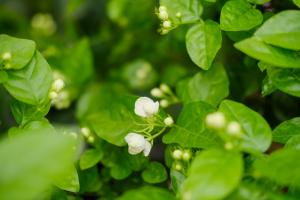1. Why is ginseng fruit called ginseng fruit
Ginseng fruit was originally called cantaloupe eggplant, also known as longevity fruit. It belongs to perennial dicotyledonous grass of Solanaceae. When the fruit is ripe, the peel will appear golden yellow, and the whole shape is like a human heart. Its pulp is rich in amino acids, vitamin C, selenium, copper, zinc, iron and other trace elements. It also has the characteristics of high protein, low sugar and low fat. The pulp has a unique taste and has a certain health care effect. After being eaten, it can supplement the nutrition needed by the human body and is beneficial to the human body. Therefore, it is called ginseng fruit

2. Efficacy and function
ginseng fruit contains a variety of trace elements and nutrients needed by human body, which can supplement a variety of nutrients needed by people's body and maintain the balance of body elements. In addition, its flesh is fresh, juicy, with a faint fragrance, sweet taste and high edible value.
alleviate throat swelling: ginseng fruit is rich in juice, which can alleviate people's throat inflammation and swelling after being eaten It also has a good effect on dry mouth and tongue caused by water shortage

prevention and treatment of diseases: ginseng fruit contains a certain amount of selenium. After being absorbed by the human body, this element can prevent the pathological changes of human cells, prevent the further spread of tumor cells, and prevent the occurrence of some diseases.
softening blood vessels: ginseng fruit contains a variety of plant vitamins. After being absorbed by the human body, it can soften blood vessels, accelerate the production of red blood cells, and make one of the blood cells in the body Some nutrients are absorbed faster and improve human immunity


 jackfruit
jackfruit snake plant
snake plant hibiscus
hibiscus hydrangea
hydrangea lavender
lavender Green roses climb al...
Green roses climb al... If you don't pay att...
If you don't pay att... Management of four g...
Management of four g...



































